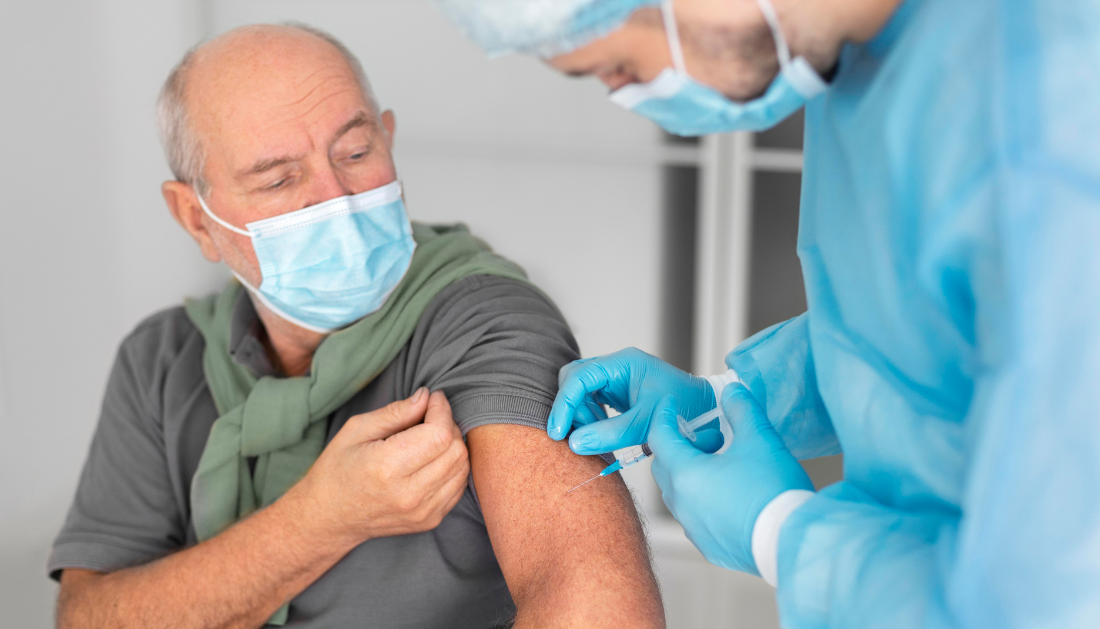

Researchers used mathematical modeling to assess whether giving older people priority for COVID-19 boosters consistently results in the best public health outcomes across a range of socioeconomic settings. The study was recently published in PLoS Computational Biology.
Context
Non-pharmaceutical interventions (NPIs) played a vital role in mitigating transmission and safeguarding healthcare systems during the initial phases of the COVID-19 pandemic.
By lowering severe cases and easing NPIs, vaccinations like those from Pfizer-BioNTech, Oxford-AstraZeneca, and Moderna dramatically changed the course of the epidemic.
But with time, protection to many vaccines declines, making booster shots necessary, particularly in cases where new variations emerge.
To achieve the best possible public health outcomes, further research is required to improve booster vaccination techniques to address different population patterns and socioeconomic circumstances worldwide.
About the study
The work expands on an age-structured compartmental model of vaccination and transmission of the severe acute respiratory syndrome coronavirus (SARS-CoV-2).
Individuals are categorized into compartments in this deterministic model, which is controlled by ordinary differential equations, according to their age, immunological status prior to any infection, and current infection status.
Individuals in the 16 age groups in the model are categorized as either Recovered, Infectious (asymptomatic or symptomatic), Exposed, or Susceptible.
The model uses gamma distributions, which realistically depict epidemiological periods, to more correctly represent the time spent in the exposed class.
The model additionally monitors immunological health by grouping people according to their infection and vaccination history into categories like Vaccinated, Boosted, Partially Waned, Fully Waned, and Unvaccinated.
The model incorporates the effectiveness of vaccination by taking into consideration the decreased chances of infection, symptoms, hospitalization, and mortality.
The study evaluates the effects of six distinct age-based booster vaccination methods in eight different nations using this model. While Strategy 6 investigates immunizing those with the greatest contacts to offer indirect protection to the elderly, Strategy 1 gives priority to the oldest people.
Variations of these strategies are tested in Strategies 2–5, with the general focus being on giving older people priority for booster shots. The analysis makes the assumption that vaccination availability is restricted, with a baseline population coverage of 10% and a maximum uptake of 90% per age group.
In conclusion
To summarize, novel variations, booster vaccines, and immunity dynamics will all have an impact on the spread of SARS-CoV-2 in the future. In contrast to the early phases of the pandemic, a large number of people worldwide are currently infected or immunized, which affects immunity and transmission.
It is critical to reevaluate the efficacy of previous interventions in this changing context and investigate novel approaches.
Regardless of changing population dynamics, prioritizing older people consistently results in superior public health outcomes, according to this study’s evaluation of several age-based booster immunization programs.
For more information: Prioritizing older individuals for COVID-19 booster vaccination leads to optimal public health outcomes in a range of socio-economic settings, PLoS Computational Biology, https://doi.org/10.1371/journal.pcbi.1012309
more recommended stories
 T-bet and the Genetic Control of Memory B Cell Differentiation
T-bet and the Genetic Control of Memory B Cell DifferentiationIn a major advancement in immunology,.
 Ultra-Processed Foods May Harm Brain Health in Children
Ultra-Processed Foods May Harm Brain Health in ChildrenUltra-Processed Foods Linked to Cognitive and.
 Parkinson’s Disease Care Advances with Weekly Injectable
Parkinson’s Disease Care Advances with Weekly InjectableA new weekly injectable formulation of.
 Brain’s Biological Age Emerges as Key Health Risk Indicator
Brain’s Biological Age Emerges as Key Health Risk IndicatorClinical Significance of Brain Age in.
 Children’s Health in the United States is Declining!
Children’s Health in the United States is Declining!Summary: A comprehensive analysis of U.S..
 Autoimmune Disorders: ADA2 as a Therapeutic Target
Autoimmune Disorders: ADA2 as a Therapeutic TargetAdenosine deaminase 2 (ADA2) has emerged.
 Is Prediabetes Reversible through Exercise?
Is Prediabetes Reversible through Exercise?150 Minutes of Weekly Exercise May.
 New Blood Cancer Model Unveils Drug Resistance
New Blood Cancer Model Unveils Drug ResistanceNew Lab Model Reveals Gene Mutation.
 Healthy Habits Slash Diverticulitis Risk in Half: Clinical Insights
Healthy Habits Slash Diverticulitis Risk in Half: Clinical InsightsHealthy Habits Slash Diverticulitis Risk in.
 Caffeine and SIDS: A New Prevention Theory
Caffeine and SIDS: A New Prevention TheoryFor the first time in decades,.

Leave a Comment